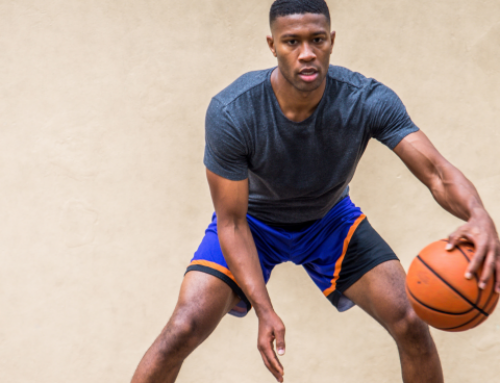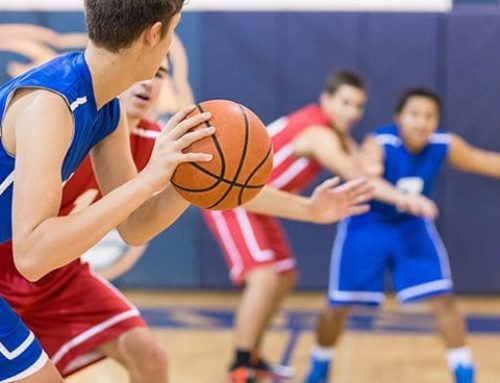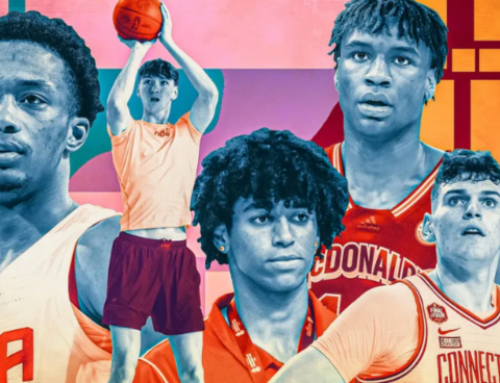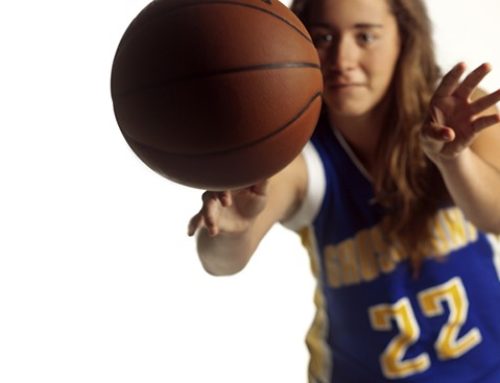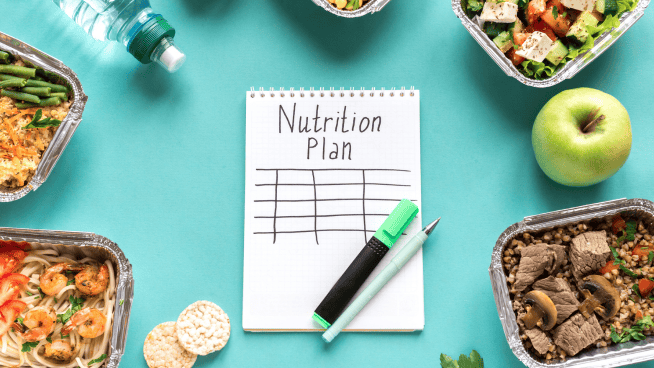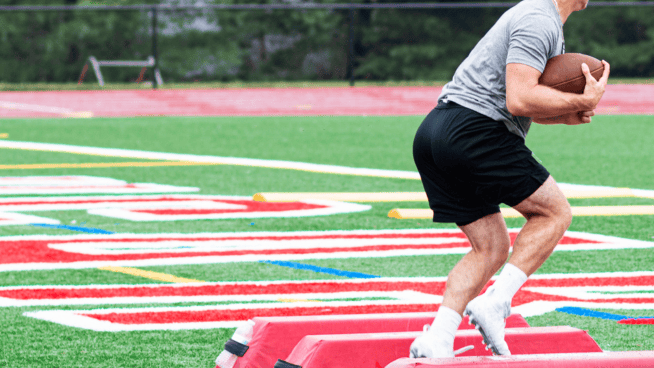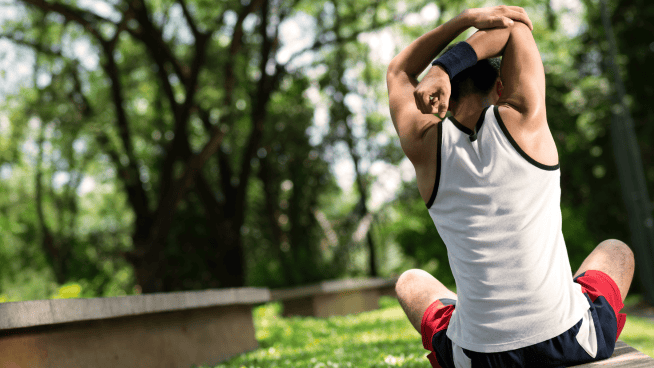Basketball Hydration – Pre, During, and Post-Competition
Hydration is not just about drinking water and Gatorade. Yes, those are the easiest ways to replace water and electrolyte loss in your body. But if your body is a dehydration machine, it will be hard to retain fluids and maximize performance on the court.
Believe it or not, what you eat plays a vital role in hydration. For instance, protein. Although it is healthy, the more protein you eat, the more water is required, so dehydration occurs. So, creating a pro-hydrating and not dehydrating environment in your body is essential, especially days before a game and practice.
Other examples of dehydration are eating salty and sugary foods, fried and processed foods, and drinking too much caffeine from coffee and energy drinks.
Eating the correct foods can be the first step in preventing dehydration.
Dehydration
Think of hydration like your car’s oil; it circulates so the motor can work properly and effectively. But with little oil, the motor goes through a sort of dehydration that negatively affects the engine’s performance. And so does your body when it experiences dehydration. It diminishes the nervous, musculoskeletal, and cardiovascular system’s potential and capability.
Symptoms of Dehydration
About 75% of Americans walk around unconsciously and are chronically dehydrated. And it is probably because of the foods they eat and the drinks they drink. In addition, most people only drink about 2.5 glasses of water daily, so they experience a double whammy. Consequently, you will be in a negative situation daily if you do not drink at least eight glasses of water a day. Your body will experience 1-1.5% water loss each day when you don’t meet the requirement.
Symptoms of daily dehydration between 1-2%.
- Sticky and dry saliva or mouth.
- Increases thirst.
- Decrease urine output. When you feel the need to urinate go and go very little.
- Your urine is dark and yellow.
Symptoms of dehydration between 2-3%.
- Low energy.
- Feelings of laziness and postponement.
- Poor concentration and focus.
- Slow movement.
- Muscle cramps and fatigue.
The 2-3% zone will definitely hurt your performance, which will be felt and seen on the court. That is why it is imperative to understand how and when to hydrate and what to avoid that will prevent a tailspin in your hydration and performance.
Hydration
Days Before a Game
Make sure you are drinking 8-10 glasses of water a day. From daily practices and sweating, you will need extra water. Also, make sure what you eat promotes hydration. For example, eat foods like fruits and vegetables. This is because they are mainly composed of water.
- Soups and broth.
- Watermelon and melons are excellent for hydration and rehydration.
- Grains like rice and oatmeal are great as well.
Pre-Game
You want to drink about 1-2 glasses (8-16 ounces) of water or a sports drink one-two hours before your game. And about 20 minutes before taking the court, drink another eight ounces of water or a sports drink. Waiting too close to game time can cause side stitches and cramping. Hydrating begins days and minutes before the tip-off.
If you have symptoms of dehydration, do not wait until you’re thirsty. Because it is at this point, dehydration is already in play and happening.
During the Game
During 90 minutes of an intense basketball game or any sport competition, you will lose between 2 and 3 liters of sweat. So, go back and look at the 2-3% dehydration symptoms. You don’t want them happening in the 3rdor 4th quarter.
During the game, when timeouts are called or there is a stoppage of play, grab some fluids. Furthermore, the end of the quarter and halftime are essential times to rehydrate.
To prevent decreased performance and to play at your max, don’t; let the motor stall or strain. Instead, try to drink at least 10 ounces of water every 10 to 20 minutes. Also, focus on drinking fluids often throughout your practice.
Post-Game
This is the time to rehydrate and recover for practices and your next game. So first, drink some water to get your fill. However, water is not the only way to hydrate. For example, you can drink chocolate milk.
Chocolate milk is 90% water and one of the best recovery drinks. It has many nutrients that will get replenished in your body. It has all the electrolytes that a sports drink will provide and has 8g of protein for your muscles to start rebuilding. You can also drink a smoothie if you don’t love chocolate milk.
Drink about two glasses, 16 ounces, after your game and even practices. The sooner you consume any drink or protein after your training is best.
When you drink, don’t guzzle. Guzzling fluids does not reverse dehydration instantly. Instead, it will cause bloating that will slow you down more. Low to mild dehydration resolves in a day or two, but your performance and energy are what suffer.
Your body is made up of about 65% water, so hydration must be maintained, just like strength training and practice, to sustain good performance. But if you really want to dive deeper into your hydration and performance, understand your sweat rate. It will help you know how much fluid your body needs.
RECOMMENDED FOR YOU
MOST POPULAR
Basketball Hydration – Pre, During, and Post-Competition
Hydration is not just about drinking water and Gatorade. Yes, those are the easiest ways to replace water and electrolyte loss in your body. But if your body is a dehydration machine, it will be hard to retain fluids and maximize performance on the court.
Believe it or not, what you eat plays a vital role in hydration. For instance, protein. Although it is healthy, the more protein you eat, the more water is required, so dehydration occurs. So, creating a pro-hydrating and not dehydrating environment in your body is essential, especially days before a game and practice.
Other examples of dehydration are eating salty and sugary foods, fried and processed foods, and drinking too much caffeine from coffee and energy drinks.
Eating the correct foods can be the first step in preventing dehydration.
Dehydration
Think of hydration like your car’s oil; it circulates so the motor can work properly and effectively. But with little oil, the motor goes through a sort of dehydration that negatively affects the engine’s performance. And so does your body when it experiences dehydration. It diminishes the nervous, musculoskeletal, and cardiovascular system’s potential and capability.
Symptoms of Dehydration
About 75% of Americans walk around unconsciously and are chronically dehydrated. And it is probably because of the foods they eat and the drinks they drink. In addition, most people only drink about 2.5 glasses of water daily, so they experience a double whammy. Consequently, you will be in a negative situation daily if you do not drink at least eight glasses of water a day. Your body will experience 1-1.5% water loss each day when you don’t meet the requirement.
Symptoms of daily dehydration between 1-2%.
- Sticky and dry saliva or mouth.
- Increases thirst.
- Decrease urine output. When you feel the need to urinate go and go very little.
- Your urine is dark and yellow.
Symptoms of dehydration between 2-3%.
- Low energy.
- Feelings of laziness and postponement.
- Poor concentration and focus.
- Slow movement.
- Muscle cramps and fatigue.
The 2-3% zone will definitely hurt your performance, which will be felt and seen on the court. That is why it is imperative to understand how and when to hydrate and what to avoid that will prevent a tailspin in your hydration and performance.
Hydration
Days Before a Game
Make sure you are drinking 8-10 glasses of water a day. From daily practices and sweating, you will need extra water. Also, make sure what you eat promotes hydration. For example, eat foods like fruits and vegetables. This is because they are mainly composed of water.
- Soups and broth.
- Watermelon and melons are excellent for hydration and rehydration.
- Grains like rice and oatmeal are great as well.
Pre-Game
You want to drink about 1-2 glasses (8-16 ounces) of water or a sports drink one-two hours before your game. And about 20 minutes before taking the court, drink another eight ounces of water or a sports drink. Waiting too close to game time can cause side stitches and cramping. Hydrating begins days and minutes before the tip-off.
If you have symptoms of dehydration, do not wait until you’re thirsty. Because it is at this point, dehydration is already in play and happening.
During the Game
During 90 minutes of an intense basketball game or any sport competition, you will lose between 2 and 3 liters of sweat. So, go back and look at the 2-3% dehydration symptoms. You don’t want them happening in the 3rdor 4th quarter.
During the game, when timeouts are called or there is a stoppage of play, grab some fluids. Furthermore, the end of the quarter and halftime are essential times to rehydrate.
To prevent decreased performance and to play at your max, don’t; let the motor stall or strain. Instead, try to drink at least 10 ounces of water every 10 to 20 minutes. Also, focus on drinking fluids often throughout your practice.
Post-Game
This is the time to rehydrate and recover for practices and your next game. So first, drink some water to get your fill. However, water is not the only way to hydrate. For example, you can drink chocolate milk.
Chocolate milk is 90% water and one of the best recovery drinks. It has many nutrients that will get replenished in your body. It has all the electrolytes that a sports drink will provide and has 8g of protein for your muscles to start rebuilding. You can also drink a smoothie if you don’t love chocolate milk.
Drink about two glasses, 16 ounces, after your game and even practices. The sooner you consume any drink or protein after your training is best.
When you drink, don’t guzzle. Guzzling fluids does not reverse dehydration instantly. Instead, it will cause bloating that will slow you down more. Low to mild dehydration resolves in a day or two, but your performance and energy are what suffer.
Your body is made up of about 65% water, so hydration must be maintained, just like strength training and practice, to sustain good performance. But if you really want to dive deeper into your hydration and performance, understand your sweat rate. It will help you know how much fluid your body needs.

